#learn about good story structure
Note
Any writing advice that works for you and you feel like sharing?
with the understanding that no advice is universal of course
28. Any writing advice that works for you and you feel like sharing?
So I have a ton of stuff in the Pia on Writing tag that goes into a lot of detail but (with the caveat to ignore anything that doesn't work for you):
Learn to love your mistakes, because you must make a lot of them to get good at writing, so if you hold back because you're worried about your writing being bad, your shooting yourself in the foot. Your writing HAS to be bad for it to get better. Or: You need manure/shit (bad writing) to grow a really good garden (good writing). You want a good garden? Start shoveling the shit in, lol.
Clever marketing won't solve not putting the hours in to hone your craft.
In fanfiction, make sure it's fun. That doesn't mean it can't be hard sometimes, that you can't dread editing sometimes or drafting, that you can't have sadder times, but make sure that the overall net is always positive. Otherwise, take a break.
In professional writing, learn how to stop waiting for inspiration to strike, and learn to turn up on that dance floor on your own. Inspiration is a fickle dance partner, it often won't turn up unless you develop the discipline to turn up first.
Sometimes the writing you absolutely slog through that feels stilted and bad is some of your best writing. Just because it feels clunky when you're writing, doesn't mean it reads clunky. Just because it feels smooth when you're writing, doesn't mean it reads smooth. Your emotional state at the time of writing does not determine the quality of writing. Feeling good while you're writing =/= good writing. Likewise feeling bad while writing =/= bad writing.
You do not need a daily habit to be good at writing. Develop one if you want one, but personally I don't have one and I'm super happy that way. Take your weekends, have your leisure time, goddamn it, don't be a terrible boss to yourself.
Writing can be both lonely and exhausting - make some non-douchey writer friends (or artist or creative friends), and make sure you take breaks. Because writing is so cerebral, you'd be surprised how much physical activity can help with recovery, like stretching, gentle walks, workouts, etc.
Eat brain food. Snacking during writing is actually normal. I have nuts on hand for protein boosts, but I'll also eat chocolate or snack on quick energy boosts.
Stay hydrated.
Ignore any writing advice that goes 'you must do this in order to be a writer' or 'you have to do this one thing to be successful.' They're wrong. There is no one-true-path in writing with the exception that you do have to write in order to like...be a writer, imho.
You are going to want to compare yourself to others, but be very aware of who you're comparing yourself to. If you're new, why are you comparing yourself to someone with 10-20 years of experience? If you're disabled and fatigued, why are you comparing yourself to able-bodied writers? Stop competing with people outside of your metaphorical weight class, they're not your competition. I'm not going to tell you not to compare yourself to others, but be very careful of how you compare yourself to others. I've had new writers be like 'I could never do your wordcounts (so I'm not as good of a writer)' and like, no friend, neither could I 10 years ago. This is literally a decade of hard work and practice. Some skills really just come with time. (Also most writers are more successful after writing less words than me so y'know lol).
If you get shitty comments/critiques, remind yourself that if you wouldn't take personal advice from a complete stranger like this (and you wouldn't), then their shitty comments/critiques aren't worth your time either.
On AO3, the delete, block, moderate comments function and mute buttons are all free. USE THEM. Don't bother giving haters airtime on your fics. Elsewhere on the internet, as much as you can, try and ignore review sites. Like seriously.
Learn your writing style. Practice planning, plantsing and pantsing! Practice writing one thing or more than one thing at a time. Practice different genres. You might be surprised at what fits you as a person! Think of it like being a musician, you're not trying to be a band that already exists, you're trying to be your band and you're trying to find your sound.
You're probably very good at noticing your weaknesses, get good at noticing your strengths, and use those to shore up the places where you're still building skills.
Do writing prompts. I cannot stress this enough, but learn how to write settings. Describe the dialogue of a friend. Write a character dossier on a television character. Practice worldbuilding, practice character building.
Fill the well. Read broadly across many genres. Watch many different types of media. Listen to many audiobooks. The best way to not sound derivative of a particular order is to saturate yourself with inspiration from hundreds of different places.
That's probably enough! dklsjfdas
~
From this meme!
#asks and answers#pia on writing#memey goodness#idk advice is hard honestly#learn about good story structure#write down the things you love and don't love in your favourite novels and fics#do the same for your own works#be compassionate to yourself#don't be an asshole boss to yourself#administrator gwyn wants this in the queue
31 notes
·
View notes
Text
Tbh... I don't think TOH should get a pass for it's shoddy plot just because some of the stuff that happens within the plot invokes an emotional response in people.
First of all, people react to concepts with varying degrees of emotional intensity based on what they like and/or their life experiences. Secondly, you can still create resonate moments with a good plot lmao.
There is no reason TOH should get a pass for making Belos a non threat for most of Season 1 just because people think x, y, z moment is wholesome or whatever.
#toh critical#i really hate this weird trend where people think story structure should be disregarded just because they happened to like an idea#and i guess there is an argument to be had that we shouldn't care about story structure because most people aren't even#aware of it when they start reading or watching something. Like they left everything they learned in literature class after they#graduated high school or college.#but it's like... then why do ppl go online to read negative analyses of their favorite piece of literature or media lmao#because people who write analyses care about story structure and it's important to them. so.#oh right and you know. just because most people aren't aware of story structure doesn't mean you shouldn't write a good story#that's like saying ''well since people don't care about music theory that means I can make a song without using music theory'' like???#very bizarre tbh
42 notes
·
View notes
Text
Chris McQuarrie is such a good writer, like, from watching Edge of Tomorrow you just know all the implicit storytelling, like how William Cage has never had satisfying sex in his life until Rita Vrataski pegged him, and then suddenly he was like "oh okay that's what the big deal is." And none of that is said outright, but you can tell, and that's just skill and craft.
#edge of tomorrow#'arc why do you like TC' no no you misunderstand#i like McQ#easy mistake to make#everything i learn about McQ's process and his ideas of what makes a good story#makes me go 'wait are you me'#i would love to sit down with McQ and just talk about how you structure stories i'm not joking#wow these tags are weirdly earnest for a shitpost
37 notes
·
View notes
Text
i think the worst media sin is creators making fans feel stupid for caring
#'why are you sad this character died? that's life. we killed them so you'd learn that.'#'what do you mean you want good stories instead of cynical and lazy ones? why are you so toxic?'#i was just thinking about tros and how the light went out of my eyes in real time#writing stories is like sharing your heart with someone else#like i am sorry you are breaking the rules if you don't keep up your end of the contract and just ape the structure and images#and then get mad that people engage with them with in earnest#you don't have to know what you are doing! but care! care!!!#if someone points out your story was doing something you didn't think it was ........ be in AWE!#yes and!!!!
15 notes
·
View notes
Text
someone saying “i don’t know” to something just to make the conversation go quicker or something, and not because they don’t actually know and would like to understand why, is not something that I was able to comprehend as a child and that’s only really hitting me now.
all the times i would be so confused because eight year old me over explaining everything because someone hinted that they didn’t know what something was was suddenly thrown back at me like “you stupid know-it-all” and i’d be all confused because i thought people WANTED to know things!
yes, i now understand that you shouldn’t suddenly start mansplaining Casey Kasem’s family history to someone, but as a kid i was at school, not living an adult life, where i was constantly told “we’re supposed to be learning!” and it just didn’t register with me that that wasn’t always true and that everyone doesn’t always want to know things.
would’ve saved me a lot of trouble if someone just explained to me that that’s not how it works instead of getting mad at me for being a know-it-all. I just knew, and I wanted to share.
#childhood#rants#neurodivergent#i used to think there was something horribly wrong with me because i couldn’t get the facts out in ways people wouldn’t get mad at#didn’t ever occur to me it wasn’t the delivery of the facts but just the overexplaining from a little kid#i think it’s why i latched onto comedians so hard#like ‘look! that’s guys explaining and people are giving a POSITIVE reaction!’#so i would try to be all jokey while overexpalining except i’m not good at structuring jokes as i’m talking#i am however a good storyteller so i learned how to turn my need to overexplain into story-time sometimes#which works for personal stories more than rambles about star trek but sometimes you get to where you are and things happen ya know?
4 notes
·
View notes
Text
It really strikes me that people treat fanfic authors as if they don't know anything about writing, which is weird because even before I wrote fic I cowrote a stage play I got an award for back in high school, poetry my teachers would frequently compliment, and my own original ideas in novel format- which structurally you learn in high school it's not some fucking Devine Knowledge no one knows about? If you didn't learn what an inciting incident is and the basic structure of a novel and tropes like The Heroes Journey by eleventh grade then fine but don't project that onto a format of writing you have some weird vendetta against. After that I went to uni and wrote dozens of academic essays for my degree, some of them quite extensive in length and obviously there's technical skill involved in that writing.
Besides that after I stopped writing fic I learned how to write screenplays and wrote like 3 episodes of TV shows in film school- which by the way used other showrunners ideas because writing an episode of an existing show is how you build a portfolio. That's right fanfic hating assholes, if you want a tv writing job pull out ur fuckin fanfic out so your ability to capture the voice of another show can be judged. I also wrote a movie script in school and I highly doubt I'm some Special Snowflake among fic authors, so where the hell does this idea that fic authors are all 13 year old yaoi obsessed morons who've never even seen a book their whole life and never learned even the most basics of writing like what an adjective is come from?
I know people who hold this idea don't seem to think they're misogynists but they treat fic identical to how people treat romance and erotica outside of Fic World and I highly doubt two areas in which women are the ones doing most of the writing would get targeted with the exact same rhetoric of "that's not real writing" for completely different reasons if the arguments against the fiction are basically the same. Because obviously Real Literature doesn't have romance, sex, or women writing it.
Regardless, it's utterly asinine to assume fic authors have no idea how to write because they're writing fic- like actually no, technically speaking I'm qualified to write all kinds of shit as far as what I know, so I don't much appreciate that my writing a single form of writing somehow means I have no skills or training just because Ive written that particular format according to some people. It's deeply insulting and I really do wonder if people think people who write as a hobby should even be allowed to have that hobby if theyre this obsessed with publish or don't ever even LOOK at a word. Like not only is it insulting to suggest that my hobby is somehow some particularly god awful drivel, but apparently those people don't know what a hobby is given that zero other hobbies get treated like this. No one walks around telling people if they aren't playing professional sports they can't play them at all- we just know that normal dudes playing football probably aren't Tom Brady and aren't looking to be either.
#winters ramblings#just because YOU dont know anything about writing doesnt mean everyone is in your boat#and ill tell you right now just because you know about writing doesnt make you good either#im fairly mediocre- raw talent in several areas but VERY diamond in the rough#granted i have more talent than the hacks shitting on fanfic im sure but ill bet im 1000X better an editor#than theyd ever be. editing isy strong suit im VERY good at looking others work over amd figuring out what to shimmy#around to make it better. sucks because i wish i was a better writer but like TECHNICALLY i can write several formats#so to suggest i dont know what im doing because i write FIC is absurd. im bad at writing because i cant plot for the life of me#story im good at worldbuilding im great at character voice im good at but plot? god help me i suck at it#still busdy WEIRD to make the assumption fic authors dont know how to write because they write fic#as if you cant learn how to write outside of fic and apply thay knowledge to the fic??#because im willing to bet of the talented authors people like they probably have experience writing#be it by themselves be it real writing jobs or training in a writing feild. theres outliers for sure but ill bet#of the REST they arent fucking morons and know how a fucking book works its not rocket science#being good at writing is almost less structure and more everything else mostly because you can get away with bad structure#assuming you have other stuff to offer but if you have the best structure in the world and BORING writing and characters well#no one will boher with that on account of reading is entertainment. you have to ENTERTAIN#by that metric dic authors do more than their hobbies on that and thats true of shite media too#like scouts guide to the zombie apocalypse isnt some Grand Amazing Oscar Winner but it doesnt need to be#like fuck if you insist on only watching oscar winners thats fine but lets not act like your Refined Taste makes you superior#like bitch ive seen oscar winners and ive read best sellers- winning awards doesnt make it Iron Clad Amazing#im sure people have lots to say about Green Books oscar win including me it should've gone to blackkklansman#point being 'good' media doesnt even escape criticism so lets not act as if only watching 'good' media#is like eating the fruits and veggies of media. you are not what you read write or watch lmao#spitting out takes that fucking dumb- as if only watching and reading Quality Content makes you lacking in anti intellectualism?#makes you sound dumber than what you paint fic authors as. media dont need to be good and hobbies arent meant to be oscar winners#or Pulitzer prize winners. fic is a fucking HOBBY and even if it wasnt that doesnt mean people who write it dont know how to write#you have no realiztic idea WHAT someones background is and book structure isnt something So Rare no one knows about it#im aure fic authors know how to ficking GOOGLE shit if they didnt go to high school you arent packing#you dont have Special Book Knowledge karen we all went to high school and if we didnt dont shit on that persons writing asshole??
10 notes
·
View notes
Text
just finished season 6 of house, I think my current season ranking is
4
1
6
2
3
5
#5 is a mood killer after s4 and way too formulaic after how strong s4 was#i also hated kutner's death since it was due to a casting conflict#s6 is AMAZING. house in Mayfield was great#its great to see house clean and improving himself. theres a lot of good moments with wilson and him and the episodes are quite varied#i specially liked the episode from Cuddy's pov as dean of medicine#s1's structure works in its favor better than other seasons bc u get to slowly learn about the cast for the first time#3 stories is prob one of my fav episodes of the whole series#s2 is forgettable but inoffensive. s3 has the tritter arc which sucks so its ranked lower
1 note
·
View note
Note
hi, i ireally love your work and i don't know if you've answered this before but, what kinds of studies do you do or how did you learn color theory? i wanna get better at rendering and anatomy but im having trouble TT TT
Hi! Long answer alert. Once a chatterbox, always a chatterbox.
When I started actively learning how to draw about 10 1/2 years ago, I exclusively did graphite studies in sketchbooks. Here's a few examples—I mostly stuck to doing line drawings to drill basic shapes/contours and proportions into my brain. The more rendered sketches helped me practice edge control & basic values, and they were REALLY good for learning the actual 3D structure behind what I was drawing.

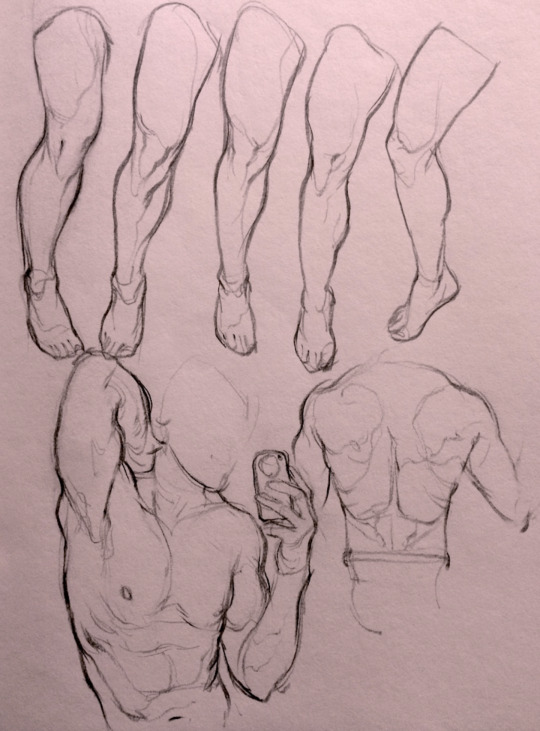

I'd use reference images that I grabbed from fitness forums, Instagram, Tumblr, Pinterest, and some NSFW places, but you could find adequate ref material from figure drawing sites like Line of Action. LoA has refs for people (you can filter by clothed/unclothed, age, & gender), animals, expressions, hands/feet, and a few other useful things as well. Love them.
Learning how to render digitally was a similar story; it helped a lot that I had a pretty strong foundation for value/anatomy going in. I basically didn't touch color at all for ~2 years (except for a few attempts at bad digital or acrylic paint studies), which may not have been the best idea. I learned color from a lot of trial and error, honestly, and I'm pretty sure this process involved a lot of imitation—there were a number of digital/traditional painters whose styles I really wanted to emulate (notably their edge control, color choices, value distributions, and shape design), so I kiiind of did a mixture of that + my own experimentation.
For example, I really found Benjamin Björklund's style appealing, especially his softened/lost edges & vibrant pops of saturated color, so here's a study I did from some photograph that I'm *pretty* sure was painted with him in mind.
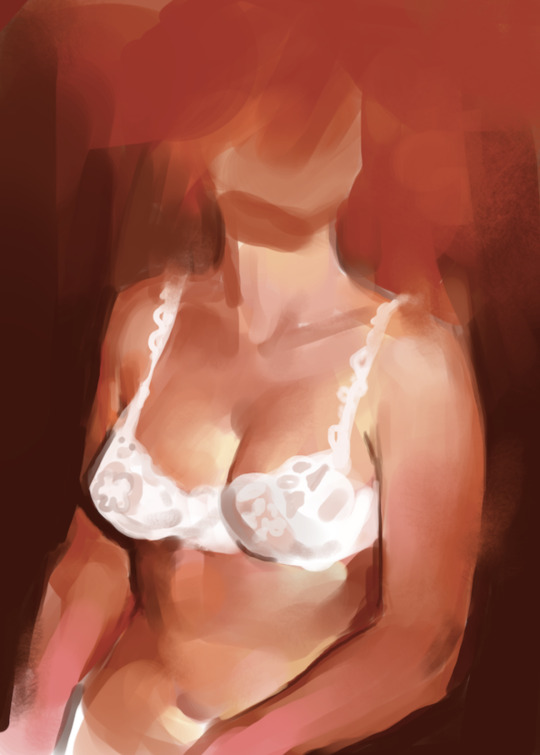
Learning how to detail was definitely a slow process, and like all the aforementioned things (anatomy/color/edge control/values/etc.) I'm still figuring it out. Focusing on edge control first (that is, deciding on where to place hard/soft edges for emphasizing/de-emphasizing certain areas of the image) is super useful, because you can honestly fool a viewer into thinking there's more detail in a piece than there actually is if you're very economical about where you place your hard edges.
The most important part, to me, is probably just doing this stuff over and over again. You're likely not going to see improvement in a few weeks or even a few months, so don't fret about not getting the exact results you want and just keep studying + making art. I like to think about learning art as a process where you *need* to fail and make crappy art/studies—there's literally no way around it—so you might as well fail right now. See, by making bad art you're actually moving forward—isn't that a fun prospect!!
It's useful to have a folder with art you admire, especially if you can dissect the pieces and understand why you like them so much. You can study those aspects (like, you can redraw or repaint that person's work) and break down whether this is art that you just like to look at, or if it's the kind of art that you want to *make.* There's a LOT of art out there that I love looking at, probably tens of thousands of styles/mediums, but there's a very narrow range that I want to make myself.
I've mentioned it in some ask reply in the past, but I really do think looking at other artist's work is such a cheat code for improving your own skills—the other artist does the work to filter reality/ideas for you, and this sort of allows you to contact the subject matter more directly. I can think of so many examples where an artist I admired exaggerated, like, the way sunlight rested on a face and created that orange fringe around its edge, or the greys/dull blues in a wheat field, or the bright indigo in a cast shadow, or the red along the outside of a person's eye, and it just clicked for me that this was a very available & observable aspect of reality, which had up until that point gone completely unnoticed! If you're really perceptive about the art you look at, it's shocking how much it can teach you about how to see the world (in this particular case I mean this literally, in that the art I looked at fully changed the way I visually processed the world, but of course it has had a strong effect on my worldviews/relationships/beliefs).
Thanks so much for sending in a question (& for reading, if you got this far)! I read every single ask I receive, including the kind words & compliments, which I genuinely always appreciate. Best of luck with learning, my friend :)
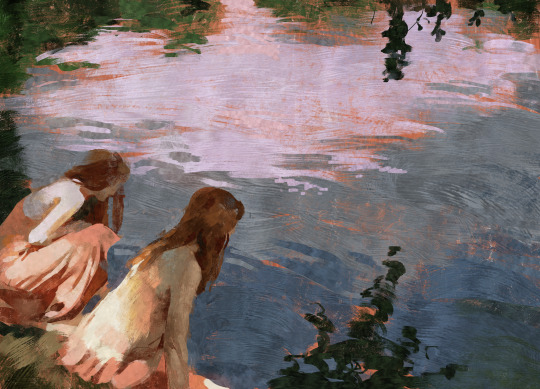
3K notes
·
View notes
Text
Not all Second-Language Speakers are Made Equal.
@waltzshouldbewriting asked:
Hello!
I’m writing a story that features a character who’s first language is not English. He’s East African, specifically from Nairobi, Kenya, and is pretty fluent in English but it’s not his primary language, and he grew up speaking Swahili first. I’m struggling to figure out if it’s appropriate or in character to show him forgetting English words or grammar. From what I’ve researched, English is commonly spoken in Nairobi, but it wouldn’t be what was most spoken in his home. For context, this is an action/superhero type story, so he (and other characters) are often getting tired, stressed, and emotional. He also speaks more than two languages, so it makes sense to me that it would be easier to get confused, especially in a language that wasn’t his first. But I’m worried about ending up into stereotypes or tropes.
For additional context: I’m monolingual, I’ve tried to learn a second language and it’s hard. A lot of how I’m approaching this comes from my own challenges correctly speaking my own, first and only language.
Diversity in Second-Language English
You seem to have an underlying assumption that second language acquisition happens the same for everyone.
The way your character speaks English depends on so many unknown factors:
Where does your story take place? You mention other characters; are they also Kenyan, or are they all from different countries?
Assuming the setting is not Kenya, is English the dominant language of your setting?
How long has your character lived in Kenya vs. where he is now?
What are his parents’ occupations?
What level of schooling did he reach in Nairobi before emigrating?
What type of school(s) did he go to, public or private? Private is more likely than you think.
Did his schooling follow the national curriculum structure or a British one? Depends on school type and time period.
Does he have familiarity with Kenyan English, or only the British English taught in school?
Is this a contemporary setting with internet and social media?
I bring up this list not with the expectation that you should have had all of this in your ask, but to show you that second language acquisition of English, postcolonial global English acquisition in particular, is complex.
My wording is also intentional: the way your character speaks English. To me, exploring how his background affects what his English specifically looks like is far more culturally interesting to me than deciding whether it makes him Good or Bad at the language.
L2 Acquisition and Fluency
But let’s talk about fluency anyway: how expressive the individual is in this language, and adherence to fundamental structural rules of the language.
Fun fact: Japanese is my first language. The language I’m more fluent in today? English. Don’t assume that an ESL individual will be less fluent in English compared to their L1 counterparts on the basis that 1) it’s their second language, or 2) they don’t speak English at home.
There’s even a word for this—circumstantial bilingualism, where a second language is acquired by necessity due to an individual’s environment. The mechanisms of learning and outcomes are completely different.
You said you tried learning a second language and it was hard. You cannot compare circumstantial bilingualism to a monolingual speaker’s attempts to electively learn a second language.
Motivations?
I understand that your motivation for giving this character difficulties with English is your own personal experience. However, there are completely different social factors at play.
The judgments made towards a native speaker forgetting words or using grammar differently are rooted in ableism and classism (that the speaker must be poor, uneducated, or unintelligent). That alone is a hefty subject to cover. And I trust you to be able to cover that!
But on top of that, for a second language speaker, it’s racism and xenophobia, which often lend themselves to their own ableist or classist assumptions (that those of the speaker’s race/ethnicity must be collectively unintelligent, that they are uneducated or low class due to the occupations where they could find work, or conversely that they are snobby and isolationist and can't be bothered to learn a new language). Intersections, intersections.
If you want to explore your experiences in your writing, give a monolingual English speaker in your cast a learning disability or some other difficulty learning language, whatever you most relate with. And sure, multilingual folks can occasionally forget words like anyone else does, or think of a word in one language and take a second to come up with it in the other language. But do not assume that multilinguals, immigrants, or multiethnic individuals inherently struggle with English or with multiple languages just because you do.
~ Rina
#asks#accents#speech#language#languages#bilingual#bilingualism#ESL#immigration#east africa#african#writeblr
2K notes
·
View notes
Text
Disney's Wish
Look, Disney's Wish has been universally panned across the internet, and for good reason.
It’s just…kind of okay.
When we sit down to watch a Disney film—you know, from the company that dominated the animation industry from 1989 to (arguably) the mid 2010’s and defined the medium of animation for decades—we expect something magnificent. Now, I could sit here and tell you everything that I thought was wrong with Wish, but if you’re reading this review, then I imagine that you’ve already heard the most popular gripes from other users across the web. So, let me focus in:
The biggest problem with Wish—in fact, the only problem with Wish—is Magnifico.
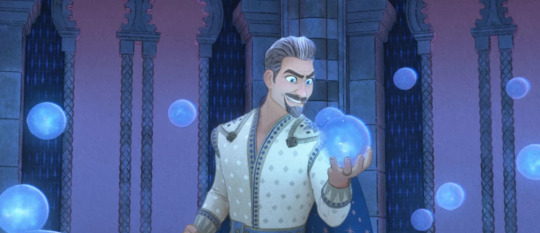
Whoa, that’s crazy! There’re so many things about Wish that could’ve been better! The original concept was stronger! The music was bad--
I hear you, I do. But stay with me here, okay? Take my hand. I studied under artists from the Disney renaissance. I teach an adapted model of Disney’s story pipeline at a University level. I spent a ridiculous amount of time getting degrees in this, and I am about to dissect this character and the narrative to a stupid degree.
First, we need to understand that a good story doesn’t start and end with what we see on the screen. Characters aren’t just fictional people; when used well, characters are tools the author uses (or in this case, the director) to convey their message to the audience. Each character’s struggle should in some way engage with the story’s message, and consequently, the story’s theme. Similarly, when we look at our protagonist and our antagonist, we should see their characters and their journeys reflected in one-another.
So, what went wrong between Asha & Magnifico in terms of narrative structure?
Act I
In Wish, we’re introduced to our hero not long into the runtime—Asha. She’s ambitious, caring, and community-oriented; in fact, Asha is truly introduced to the audience through her love of Rosas (in “Welcome to Rosas”). She’s surrounded by a colorful cast of friends who act as servants in the palace, furthering her connection with the idea of community but also telling us that she’s not of status, and then she makes her way to meet Magnifico for her chance to become his next apprentice.
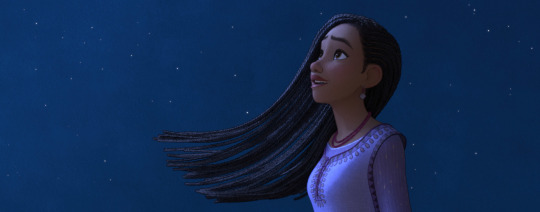
Quick aside: I'm not going to harp on Asha as a character in the context of Disney's overall canon. Almost every review I've seen covers her as a new addition to Disney's ever-growing repertoire of "Cute Quirky Heroines", and I think to be fair to Asha as an actor in the narrative, it serves her best to be weighed within the context of the story she's part of.
As Asha heads upstairs for her interview, we're introduced to the man of the hour: Magnifico. He lives in a tower high above the population of Rosas, immediately showing us how he differs from Asha; he’s disconnected from his community. He lives above them. He has status. While the broader context of the narrative wants us to believe that this also represents a sense of superiority, I would argue that isn’t what Magnifico’s introduction conveys; he's isolated.
Despite this distance, he does connect with Asha in “At All Costs”. For a moment, their goals and values align. In fact, they align so well that Magnifico sees Asha as someone who cares as much about Rosas as he does, and almost offers her the position.
… Until she asks him to grant Saba’s wish.
This is framed by the narrative as a misstep. The resonance between their ideals snaps immediately, and Magnifico says something along the line of “Wow. Most people wait at least a year before asking for something.”
This disappointment isn't played as coming from a place of power or superiority. He was excited by the idea of working with someone who had the same values as he did, who viewed Rosas in the same way he does, and then learns that Asha’s motivations at least partially stem from a place of personal gain.
Well, wait, is that really Asha's goal?
While it's not wholistically her goal, it's very explicitly stated & implied that getting Saba's wish granted is at least a part of it. The audience learns (through Asha's conversation with her friends before the interview) that every apprentice Magnifico has ever had gets not only their wish granted, but the wishes of their family, too! Asha doesn’t deny that this is a perk that she’s interested in, and I don't think this is a bad thing.
So, Is Asha’s commitment to Saba selfless, or selfish? I’m sure the director wanted it to seem selfless, wherein she believes her family member has waited long enough and deserves his wish granted, but we can’t ignore the broader context of Asha essentially trying to… skip the line.

Then, we get our first point of tension. Magnifico reveals his “true colors” in snapping at Asha, telling her that he “decides what people deserve”. This is supposed to be the great motivator, it’s meant to incite anger in the audience—after all, no one gets to decide what you deserve, right? But unfortunately for the integrity of the film and the audience's suspension of disbelief, at least part of Magnifico’s argument is a little too sound to ignore:
Some wishes are too vague and dangerous to grant. Now, there’s visual irony here; he says this after looking at a 100 old man playing the lute. The idea that something so innocuous could be dangerous is absurd, and the audience is meant to agree.
... But we’ve also seen plenty of other wishes that might be chaotic—flying on a rocket to space, anyone? The use of the word vague is important, too—this implies wording matters, and that a wish can be misinterpreted or evolve into something that is dangerous even if the original intent was innocuous. His reasoning for people forgetting their wish (protecting them from the sadness of being unable to attain their dreams) is much weaker, but still justifiable (in the way an antagonist’s flawed views can be justified). The film even introduces a facet of Magnifico’s backstory that implies he has personal experience with the grief of losing a dream (in the destruction of his home), but that thread is never touched on again.
What is the audience supposed to take from this encounter? If we’re looking at the director’s intent, I’d argue that we’ve been introduced to a well-meaning young girl and a king who’s locked away everyone’s greatest aspiration because he believes he deserves to have the power to decide who gets to be happy.
But what are we shown? Our heroine, backed by her friends, strives to be Magnifico’s apprentice because she loves the city but also would really like to see her family's wishes granted. When this request is denied and she loses the opportunity to be his apprentice, she deems Magnifico’s judgement unfair & thus begins her journey to free the dreams of Rosas’ people.
In fairness, Magnifico doesn’t exhibit sound judgement or kindness through this act of the film. He’s shown to be fickle, and once his composure cracks, he can be vindictive and sharp. He's not a good guy, but I'd argue he's not outright evil. He's just got the makings of a good villain, and those spikes of volatility do give us a foundation to work off of as he spirals, but as we’ll discuss in a bit, the foreshadowing established here isn’t used to the ends it implies.
While I was watching this film, I was sure Magnifico was going to be a redeemable villain. He can’t connect with people because he's sure they value what he provides more than they value him (as seen in “At All Costs” and the aftermath), and Asha’s asking for more was going to be framed as a mistake. His flaw was keeping his people too safe and never giving them the chance to sink or swim, and he's too far removed from his citizens to see that he is appreciated. Asha does identify this, and the culmination of her journey is giving people the right to choose their path, but the way Magnifico becomes the “true” villain and his motivations for doing so are strangely divorced from what we’re shown in Act I.
Act II:
His song, “This is the Thanks I Get!?” furthers the idea that Magnifico’s ire—and tipping point—is the fact that he thinks the people he’s built a kingdom for still want more. Over the course of this 3:14 song, we suddenly learn that Magnifico sends other people to help his community and doesn’t personally get involved (we never see this outside of this song), and that he’s incredibly vain/narcissistic (he's definitely a narcissist). I think feeling under-appreciated is actually a very strong motivation for Magnifico as a character-turning-villain, and it works very well. It’s justified based on what we’ve seen on screen so far: he feels under-appreciated (even though he’s decidedly not—the town adores him), he snaps and acts irrationally under stress (as seen with his outburst with Asha), and he’s frustrated that people seem to want more from him (again, as seen with his conversation with Asha in Act I).
But then… he opens the book.
Ah, the book. As an object on screen, we know that it's filled with ancient and evil magic, well-known to be cursed by every relevant character in the film, and kept well-secured under lock and key. But what does it stand for in the context of the narrative's structure? A quick path to power? We're never told that it has any redeeming qualities; Magnifico himself doesn't seem to know what he's looking for when he opens it. It feels... convenient.
I think it's also worth noting that he only turns to the book when he's alone; once again, the idea of connection and community rears it's ugly head! Earlier in the film, Amaya-- his wife-- is present and turns him away from taking that path. In her absence, he makes the wrong choice.
This decision could make sense; it contains powerful magic, and if it were framed in such a way that the people of Rosas were losing faith in Magnifico’s magic, as if what he can do might not be enough anymore after what they felt from Star, going for the book that we know contains spells that go above and beyond what he can already do would be logical. Along the lines of, “If they’re not happy with what I do for them, fine. I, ever the “martyr”, will do the unthinkable for you, because you want more.”

It would keeps with the idea that Magnifico believes he's still trying to help people, but his motivation has taken his self-imposed pity party and turned it into resentment and spite.
But, that’s not the case. Instead he talks about reversing that “light”, which has had no real negative or tangible consequences on Rosas. Everyone had a warm feeling for a few seconds. Again, it’s meant to paint him as a vain control freak, but… he hasn’t lost any power. The citizens of Rosas even assume the great showing of magic was Magnifico.
Act III
Then, we get to the consequences of opening the book (and perhaps my biggest qualm with this film). The book is established as being cursed. Magnifico knows it, Asha knows it, and Amaya—who is introduced as loyal-- knows it. The characters understand his behavior is a direct result of the book, and search for a way to save him. This is only the focus of the film for a few seconds, but if you think about it, the fact that his own wife cannot find a way to free him of the curse he’s been put under is unbelievably tragic. Worse still, upon discovering there is no way to reverse the curse, Magnifico—the king who built the city & “protected it” in his own flawed way for what seems to be centuries—is thrown out by his wife. You know, the wife who's stood loyal at his side for years?
It’s played for laughs, but there’s something unsettling about a character who’s clearly and explicitly under the influence of a malevolent entity being left… unsaved. If you follow the idea of Magnifico being disconnected from community being a driving force behind his arc, the end of the film sees him in a worse situation he was in at the start: truly, fully alone.
They bring in so many opportunities for Magnifico to be sympathetic and act as a foil for Asha; he’s jaded, she’s not. He’s overly cautious (even paranoid), she’s a risk-taker. He turns to power/magic at his lowest point, Asha turns to her friends at her lowest point. Because this dichotomy isn’t present, and Magnifico—who should be redeemable—isn’t, the film is so much weaker than it could’ve been. The lack of a strong core dynamic between the protagonist and antagonist echoes through every facet of the film from the music to the characterization to the pacing, and I believe if Magnifico had been more consistent, the film would’ve greatly improved across the board.
I mean, come on! Imagine if at the end of the film, Asha—who, if you remember, did resonate with Magnifico’s values at the start of the film—recognizes that he's twisted his original ideals and urges him to see the value in the people he’s helped, in their ingenuity, in their gratitude, & that what he was able to do before was enough. Going further, asking what his wish is or was—likely something he’s never been asked— and showing empathy! We’d come full circle to the start of the film where Asha asks him to grant her wish.
Pushing that further, if Magnifico’s wish is to see Rosas flourish or to be a good/beloved king, he'd have the the opportunity to see the value in failing and how pursuing the dream is its own complex and valuable journey, and how not even he is perfect.
The curse and the book (which, for the purposes of this adjustment, would need to be established as representing the idea of stepping on others to further your own goals/the fast way to success), then serve as the final antagonist, that same curse taking root in the people of Rosas who’ve had their dreams destroyed, and Asha works with the community to quell it. Asha’s learned her lesson, so has Magnifico, and the true source of evil in the film—the book—is handled independently. Magnifico steps back from his role as King, Amaya still ends up as Queen, and Asha takes her place as the new wish-granter.
This route could even give us the true “Disney villain” everyone’s craving; giving the book sentience and having it lure Magnifico in during “This is the Thanks I Get!?” leaves it as its own chaotic evil entity.
All in all, Magnifico's introduction paved a road to redemption that the rest of the film aggressively refused to deliver on, instead doubling down on weaker motivations that seem to appear out of thin air. Once the audience thinks, hey, that bad guy might have a point, the protagonist has to do a little more heavy lifting to convince us they're wrong.
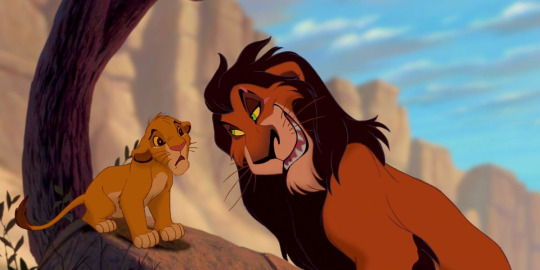
Look at the big-bad-greats from Disney's library. There isn't a point in the Lion King where we pause and think, "Wait a second, maybe Scar should be the guy who rules the Pridelands." Ursula from the Little Mermaid, though motivated by her banishment from King Triton's Seas, never seems to be the right gal for the throne. Maybe Maleficent doesn't get invited to the princess's birthday party, but we don't watch her curse a baby and think, Yeah, go curse that baby, that's a reasonable response to getting left out.
What do they all have in common? Their motivation is simple, their goal is clear, and they don't care who they hurt in pursuit of what they want.
Magnifico simply doesn't fall into that category. He's motivated by the idea of losing power, which is never a clear or impactful threat. His goal at the start seems to be to protect Rosas, then it turns into protecting his own power, and then-- once he's corrupted-- he wants to capture Star. The problem is, there's no objective to put this power toward. Power for power's sake is useless. Scar craves power because he feels robbed of status. Ursula believes the throne is rightfully hers. Maleficent wanted to make a statement. Magnifico... well, I'm not really sure.
1K notes
·
View notes
Text
take me home, country road
[ao3]
You have nothing on your person apart from a hastily packed suitcase and the dress you came into town wearing, on the run from trouble back home. Too bad John's missing a bride that matches your description.
Or: the 1800s (mistaken) mail order bride au (chapter 12)
[note: trigger warning for a pretty rough spanking scene with a belt and minimal aftercare. if you need to, you can skip to the midway point (there's a line between the first half and second).]
first chapter >> last chapter
-
He keeps your hands tied behind your back on the ride home.
All that does is confirm the fact that he must know. Graves must have tracked him down or perhaps he was approached by someone who did consider your sudden arrival in town suspicious. Why else would the sheriff chase you all the way into the mountains on horseback and then take you back with him? He would’ve within his rights to leave your thieving self to wander alone in the woods and succumb to the elements.
John doesn’t say a word the first hour of the ride back. You can feel the anger emanating from him though. He almost shakes with it. His anger somehow upsets you more than whatever is left to come.
“Anytime you wanna start talkin’, I’m all ears,” John finally says, breaking the silence.
You keep your lips pressed together, stubbornly silent. There’s no use giving yourself away before you’ve learned how much he knows. You haven’t built this life of yours with loose lips.
“I don’t know what in the Sam Hill has gotten into you,” he continues, and his voice is cobblestone tread rough in the night. “Running off all by yourself. There ain’t nothing out in these parts except outlaws and highwaymen. There are men out here that’d love to get their hands on a woman like you—not even a knife to defend yourself with. You haven’t even got a scrap of food on you, never mind water. You’d’ve been dead in a week if the men out here hadn’t picked you off themselves.”
His words make your stomach ache. You know that there are worse things out there. A thousand gruesome ways to die. You’re less of a lady than John might think—you’ve heard stories. You’ve brushed close to that reality yourself. You wonder how he’d take it if you were to tell him about what had happened back east.
Maybe running away this time hadn’t been your smartest idea, but it had been your only. You can’t fault yourself for the instinct to survive.
“I know,” you mumble, dropping your chin to your chest.
“You gonna explain to me why you stole my horse and ran off in the first place?” he asks.
It’s the strangest interrogation you’ve ever heard of—sitting on the same horse with your back to the man questioning you and your hands tied together at the wrists. You wonder if you leaned back whether you’d feel his heart beating furiously in his chest.
You remain mulishly silent though, reticent to answer the question.
“Maybe I’ve been spoiling you,” he continues, trying to rationalize it to himself. “After the fuss you put up those first few days, I thought a bit of structure and discipline would do you well, and it did. Giving you a bit of slack was my mistake.”
You frown at that. Those don’t sound like the words of a man with any knowledge of the circumstances leading to you running off. He might not even have come across Graves at all in the hours since the man made his appearance in the general store. Otherwise, you can’t imagine how he wouldn’t make the connection.
Still, you can’t make yourself come right out and say it, even though every iota of your being aches to let the truth out. Call it nerves overpowering the need to be truthful and good. You vacillate between honesty and self-preservation, but each avenue feels like being dropped into a nest of vipers.
But he doesn’t know. He doesn’t know. If he knew, he wouldn’t question you like this. It’s a boon you can’t give up, not yet. Not when the thought of his inevitable righteous fury fills you with dread and self-loathing.
“I don’t have to explain myself,” you spit out suddenly, and it’s not you saying those words but something ugly and sad in you. “You’re not my owner.”
“I damn sure am your husband though,” John growls, winding his free hand around your hair to tug you back into his chest. “And I know these parts far better than you, little miss. Beyond running off on me for no good reason when I thought we put your reticence behind us, you went and put yourself in danger the likes of which you couldn’t even fathom.”
“I’m not an idiot,” you snap. “I know what men are like.”
“You’re telling me you pulled that stunt knowing what kinda danger is out there in the woods?”
“I wasn’t thinking!”
“I know you weren’t,” John grunts. “That’s the issue.”
The rest of the ride home is uncomfortably quiet. John keeps one hand clamped on your waist while the other holds the reins of both horses, the two walking alongside each other back down the trail towards the house. The ride home is a lot longer than the ride out into the woods since John refuses to let either of them go faster than a slow trot while your hands are tied behind your back.
He snorts in derision at your suggestion to undo your binds. “That eager for your punishment?”
That gets you to zip your lips.
When you get drowsy, John tips your head back and makes you sip from his waterskin. His hand fits carefully around your throat to hold your head in place, his fingers curling around to just graze the nape of your neck. Your throat pulses under his palm when you swallow. It’s far too intimate for how restless you feel, damn near shaking out of your skin, but it briefly shushes the voice in your head until he pulls his hand away.
A shadow under the doorway of the house startles you at first before it takes a step into the faint light of the setting sun and you recognize the bristly blond of Simon’s shorn head and the red bandana shrouding the bottom half of his face. The tension ebbs back into you when you realize with creeping humiliation that the black horse you rode home on must belong to him.
He watches the two of you approach with predictable disinterest, his eyes betraying nothing. The shame is excruciating.
John brings the horse to a halt some feet from Simon, not bothering to greet him. You wonder if it’s the anger choking him or if this is just routine, men trading favors in silence lest a word in gratitude break the spell. After dismounting himself, John helps you down, all but picking you up and lifting you off the horse.
Simon doesn’t say a word to either of you when he takes the reins from John’s hands, giving him only a curt nod and you a cursory glance before leading his horse away to mount. He doesn’t spare you a backwards glance before taking off back towards town. You watch him over your shoulder while John guides you up the porch steps and into the house, until the shape of him disappears into the horizon. Then the door shuts behind you.
Alone now, your attention turns back to John. He stares down at you consideringly, a hand planted on the door he just shut until he lets it fall to his side. You can see the gears turning in his mind, weighing something out.
It wouldn’t be right to call it anticipation; it’s not quite dread either.
“I don’t make idle threats, you know,” he says, apropos of nothing.
His words make you frown until you glance down to find him undoing his belt. Your blood turns to ice. He tugs the thick strap until it comes sliding out of each loop around his waist. The buckle rests heavy in his palm, thick fingers curling around it, and when he bends the belt in two, you already know that he intends to follow through with his threat from earlier, the one you said you’d gut him for.
“I’ll scream,” you warn, heart in your throat. It almost chokes you. “I mean it. I’ll scream like the devil.”
“Don’t go makin’ no empty threats now, darlin’,” he says in a low voice, almost taunting. You can hear the hard edge in his voice though. It’s not something he craves, but he’ll take it.
“You touch me with that thing and I’ll never forgive you.”
John’s eyes go hard. “I’ll just have to take that chance.”
And then he’s on you.
He hooks an arm around your waist when you try to rush past him back out the door and it forces the breath out of you.
You struggle as best you can with your hands tied behind your back, trying to wriggle out of his hold even as he heaves you up into his arms and climbs the staircase towards the bedroom. The steps creak under the added weight of you in his arms. The screams come tearing from your throat, ripping your vocal cords and nearly sending you into a coughing fit.
“Let—me—go—” you shriek, kicking out wildly, hoping to catch something that’ll make him lose his balance.
“All that squirmin’ ain’t making me feel more merciful,” he growls.
John kicks the bedroom door open with his foot when he reaches the top of the staircase. The room looks ominous without the oil lamp lit, the shadows growing in the corners swallowing up the end table. The bed is just as you made it this morning, the sheets pressed tight and neat, and you only get a second to take that in before he marches towards the bed and throws you down onto it.
You hit the bed hard, bouncing slightly. He sits down heavily enough to jostle you and when you try to roll away on instinct, a hand catches you by the bicep and pulls you back. He hauls you across the bulk of his thighs this time, far different from your first meeting back in the sheriff’s office all those weeks ago. Your feet don’t even touch the floor this time around, dangling in the air and flailing for purchase.
“You brute—you bastard!” you screech.
“I’m not gonna be as charitable this time,” John says, yanking your dress up and your drawers down until your bare bottom is exposed. You gasp at the cold air, murmuring something like please, please, please under your breath. “Even if I knew why it was you decided to run off, that doesn’t excuse the fact that you did. You coulda been hurt or worse out there, darlin’, and I’d never have forgiven myself. I’m gonna make sure the lesson sinks in this time.”
He folds the leather belt to hold it in one hand, leaving the other to pin you down over his thighs, making sure you don’t wriggle out. The leather is cool at first when he drags it over your butt. It makes your breathing pick up. It’s so gentle that you can almost trick yourself into thinking that it’s all he intends to do.
The first lash comes so quick that you barely register it. The second knocks the wind out of you, and then the pain sets in.
It stings something fierce. Where his palm hurt that first time he bent you over his desk and spanked you, the belt burns. It goes deep and it lingers when he pulls the leather away from your stinging bottom.
“Hurts like the dickens, don’t it?” John asks, not bothering to wait for confirmation before bringing the belt down again. “You’re lucky it’s only ten this time.”
You howl into the bedsheets, eyes tearing up and spilling down your cheeks. When you try to cover your ass with your bound hands, John grabs them and pins them to the small of your back.
“What’ll you never do again?” he growls.
“I—I’ll—”
“Say it, darlin’: I’ll never run off on my own again.”
“I’ll—n-never gonna—oh, it hurts, John—please—”
At some point, you must say the words he’s looking for. You lose count of how many times his belt has struck across your ass. Like thunder coming after lightning, you feel it and then you hear it. The sharp snap comes as a second wave of agony in and of itself.
Your throat is stripped raw by the time it’s over. The aftermath finds you with a puddle of drool under your cheek, hair matted to your face. Sweat slicks the backs of your thighs and down your spine. Even the gentlest brush of John’s hand over your backside, the belt deposited off the side of the bed, makes you flinch, the skin there tender to the touch. You’ll surely feel it deep in your bones come sunrise.
Too exhausted for anger, all you can do is lie there. It sits heavy in your stomach though, a pit at the center of you. You want to say, who gave you the right? The answer burns a ring around your finger though. You want to say, you don’t understand, it had nothing to do with you. It has everything to do with him and you.
You can tell he wants to say something. It gets choked in his throat, but you can hear it in the way his breath draws in, like he’s trying to coax it from his chest but it simply won’t come out.
“Stay right there,” John rumbles instead, shifting you onto the bed to let you lie on your belly.
You moan in pain when he moves you, sniffling into your arms. The crook of your elbow is sticky with your tears and snot.
The bed dips under his weight when he comes back. You flinch violently when he draws the skirt of your dress up again and smooths his hand over the tender cheeks of your backside, spreading a cool salve over your skin. The first touch of his hand makes you hiss, tears beading in the corners of your eyes again, but then the cool sinks in, alleviating the ache.
He does that for another few minutes in silence. Gentle, tentative touches, only stopping when the salve has been spread evenly over your bottom. He’s quiet when he shifts you up the bed until your feet are no longer dangling off the end. You’re distantly aware of him taking off your shoes and tucking you into bed, but the events of the day have finally gotten the better of you. It would be easier to push a boulder up a hill than crack even one of your eyelids open.
Time passes slowly; sluggishly. Your thoughts can’t quite catch up with it, either too quick or too slow. You’re stuck in thoughts of the desert, caught in a sandstorm that manifests too suddenly for you to take cover. All you can do is close your eyes and wait it out.

Morning comes like a brutal summoning into the waking world.
It hurts, but you expected that. Before your eyes even open, you’re aware of a throbbing pain coming from your backside. You wince when you shift to your side, squeezing your eyes tight. You contemplate rolling over and taking your chances with John’s temper. The thought isn’t as appealing in the light of day though.
It takes some time to get out of bed and when you do, you have to step tentatively from floorboard to floorboard, the ache making it decidedly uncomfortable. You can’t imagine what sitting down will be like. Riding a horse is just out of the question.
From the bedroom window, you see John standing in front of the house with Simon, back again not even twelve hours later. With the window closed, you can’t hear their conversation, nor can you read their lips. Their exchange doesn’t last long though. After another minute or so, and a nod goodbye, Simon walks back over to his horse standing nearby and lifts himself up and over onto the saddle, taking off towards town.
When John turns back towards the house, you see him glance up towards the bedroom window where you stand. The circles beneath his eyes are dark, pronounced. On another day, you might’ve ducked out of sight or jumped away from the window, but now you hold his gaze.
He breaks your stare first this time, heading back inside. It’s less satisfying than you thought it’d be.
You spend the day resting in bed and avoiding John for the most part. He spends the majority of the day out of the house. You hear him downstairs in the kitchen around midday, fixing himself up something to eat, and you listen attentively to the scrape of the chair across the floor and the pan on the stovetop. Like the day he brought you home, he brings you up a tray only to leave it at the door, rapping the door with his knuckles to let you know before heading back downstairs.
When he comes up for bed, you’re already lying down with your back to the door, the oil lamp left unlit. John doesn’t say anything to you as he changes into his nightwear. He smells fresh when he climbs into bed, like he bathed in the creek out in the woods. You breathe in deeply, trying to keep your breath quiet enough to not disturb the silence. The pillow under your head is saturated with his scent. You turn your nose into it when he lies down on his back instead of curling into you like he usually does.
Your chest aches at that simple denial. There’s a wall between the two of you and you know where it came from. Any trust that you’d built lies in ruins now.
Perhaps that’s not quite right though. It’s a romantic notion that you’ve been building something together all this time, but it doesn’t feel right now that you have the wherewithal to look back and reflect. All this time, whenever you’ve touched, you’ve held him steadfast and at an arm's length away, stopping two degrees short of intimacy.
Deliberately effusive; and worse, you’ve called it affection.
The tenderness in your heart is the worst of it. There’s a bruise there, and it’s been there awhile. It’s only grown with your recent troubles. You tell yourself every year that you’ll air it out come spring, but then the winter comes and it freezes over again.
The pillow under your chest grows damp with your tears.
Your dress the next morning is cornflower blue. The wheatfields are golden stalks swaying in the breeze. It’s a pleasanter day than how you feel.
The ride into town is as painful as you thought it might be. You wince with every stride, your bottom still tender as a rose. John’s arm tightens around your waist when you squirm, like you might slide off the saddle and try to flee again, and you bite your lip to hold back the urge to snap.
The little bit of independence you’d grown to enjoy is snatched away from you. You expected that as well, but that loss of privilege comes with a biting ache. You fight the urge to gnash your teeth and bark at him that you’re not a child when he grips you under the arm and leads you down the road. It wouldn’t do you any good.
When John leaves you off at the general store, you’re surprised to find Kate back, hale and hearty. She looks up when the chime over the door jingles and raises her eyebrows in greeting. The sound makes you flinch, memories coming back unbidden.
You look over your shoulder to say something to John before he leaves, but the door is already closing behind him by the time you turn around. Your lips are pursed on a word that dissolves in your mouth. It has a bitter aftertaste.
“Thought you wouldn’t be back for a few more days,” you say instead, turning back to Kate. There’s already a chair pulled up for you by the wall and you make yourself comfortable there, grimacing at first when your sore backside touches the wood before settling in.
She shrugs. “Plans changed. Gaz and I made it back late last night.”
You frown. “Gaz?”
“Kyle Garrick. Sorry—slip of the tongue. You’ve met him already. He used to go by Gaz way back when.”
“Way back when?”
“Not my story to tell. You should ask one of them, if you’re curious.”
You are, but not enough to ask. “Maybe.”
The two of you lapse into silence after that exchange. Before leaving the house, you remembered to bring with you some needles and wool to pass the time. They’re not as familiar in your hands as you’d like them to be, but you suppose, barring the possibility of Graves or another bounty hunter showing up in town to cart you off, you’ll have time to learn.
The thought leaves you anxious. It feels distinctly more possible now.
“You met Miles while I was away?” Kate asks, out of the blue.
Your head comes up at her question. “Miles?”
“He was minding the store for me while I was away. Said you came in the other day.”
You swallow reflexively. “Oh. Yes, I suppose I did meet him. I didn’t stay long, since you were gone and all.”
She hums and looks back down at the book in front of her. You feel nervous all of a sudden.
“He said you were very helpful,” she says abruptly, breaking the silence. You flinch. “Told me some gentleman came by with a warrant for a murder back east and you were kind enough to take it to your husband for him so he could keep minding the shop.”
Your throat constricts. She pins you under her gaze, unblinking eyes staring into yours but not looking for anything. Wispy blonde bangs brush along her forehead when she tilts her head ever so slightly.
You nod instead of answering.
“Did you give it to him?” she asks.
“I didn’t have a chance to. The day got away from me,” you say tersely.
“I heard something about that. Kyle said John had to borrow Simon’s horse the other day. Said something about him taking off in a hurry.”
Again, you don’t answer. It feels like without knowing it, you’ve crossed over a threshold.
“Do you still have it?” Kate prompts when again you don’t respond. You don’t tell her that you don’t because in all the fuss the other day, it must have slipped out of your pocket and drifted off into the wind. “The warrant?”
“No,” you whisper, shaking your head.
“That’s alright. I have a good enough idea about what it might’ve said.”
Sweat beads on your upper lip. She all but says it outloud. You’re as still as a ferrotype under her gaze, imprinted in place, unable to move so much as a muscle or force a word past your stiff lips.
“You’re under no obligation to tell me or anyone,” Kate says, and her voice is suddenly gentle, softer than you’ve ever heard it before. “I’m sure you had your reasons. I won’t be telling John, if that’s what you’re worried about.”
“Oh. Thank you,” you breathe, throat so tight that the words almost don’t come out.
It’s the closest you’ve come to admitting to it, tangentially or not, and even now it’s spoken only out of the corner of your mouth. You don’t think you have it in you to recite the events sequentially. Even in the privacy of your memory, it comes piecemeal, in fragmented images that flicker across your mind because maybe to remember it whole would be too much.
You don’t say much more after that, and neither does Kate. That wasn’t the point of bringing it up, you think. You'd know if it was.
When John comes to fetch you at the end of the day, you leave without saying goodbye to Kate. Only a stiff smile before heading out on your way. If she returns your smile, you don’t notice it. To John, you simply duck your head and follow him out the door, letting him help you up onto the horse without a word.
If it bothers him that you refuse to speak to him, he doesn’t show it.
It’s so many steps back that you might as well be back where you started. Maybe even further back, a voyage gone so wrong that when you look over your shoulder, you can’t make heads or tails of where you came from. The trees from the other side of the trail never look quite the same.
If you could open your mouth and say it, you would. If you knew he’d listen. But you don’t think John is that kind of man. Against the gold of the setting sun, he cuts a figure from times of yore. He speaks plain while you tend to speak in fricatives and bilabial stops, incapable of enunciating the words.
You feel like a wound on the world. Getting it wrong again and again.
It’s an old pain, one that started back when you were too small to hold it all. Now, you’ve grown large enough to hold it, though it holds you back in turn. You remember your parents studiously ignoring first creation like some noxious cloud billowing from the chimney. There’d been too many children for them to care about the runt. Shipped off to your aunt’s and uncle’s just for the cycle to repeat itself.
It’s an old grief, this one, friendly because it nudges at your hips when you brush by, striking in the blue-green. And when it burns, it burns.
“John, I—” you say when he helps you down back at the house.
He stares down at you, waiting you out. Your mouth goes dry, the truth beyond your grasp again. Your heart aches when his brows furrow and the lines around his eyes crease again, frustration welling beneath the surface.
You understand. It sits under your skin too.
"Go inside," he says instead when you don't go on. "I'll bring in the horses and start supper."
Your God sits at the edge of the bed, wholly lacking praise. It’s not His fault that it’s been awhile. These days, you can hardly muster up the energy to say hello. You gargle saltwater before you bathe and scrub your skin free of blood, waiting for the next morning to come.
And you think, lying on your side while John sleeps on the other side of the bed, wouldn’t it be lovely to get it right now, rather than in retrospect?
#ceil writing#cod mw2#cod x reader#john price x reader#price x you#price x y/n#price x reader#price/reader#john price/reader#captain john price
873 notes
·
View notes
Note
Hi Pia! Hope you’re well, all things considered. <3 Would you have any advice for someone who’s trying to get back into writing after a long period of not doing it? I used to write obsessively when I was younger, but it’s now been six or seven years that I just… haven’t. There are plots I’ve played with and half-planned in the last few years, but I don’t remember the last time I just sat down and wrote, and it’s so frustrating because I remember it coming to me so easily before. Is there any method to this you would recommend, or does it boil down to… just doing it?
Hi hi anon!
So I think there's some psychological things to address first.
If you stopped running marathons for 6-7 years you'd have to start almost from scratch again when you started training once more. You'd probably remember how to train, and your muscles might pick it all up faster, but the fact is any skill if you stop for that length of time atrophies kind of like a muscle.
So while you feel frustrated, what you're going through is normal, and a consequence of just...stopping. If you want to do it again, you have to come at this with the idea of sort of training yourself up again. Expecting yourself to write as you did when you used to write obsessively, without any build up to it, is really really unfair on yourself!! It's also just not realistic. So maybe just gently and compassionately reality check yourself there, because the reason a skill comes easily to you a lot of the time is because you're doing it a lot at the time - and if you're writing obsessively, you're kind of fast-tracking all that training.
So some patience is called for, because frustration that you're not immediately a trained person in writing after 6/7 years of giving no time to it is like... I mean firstly frustration alone won't be motivational and it's not discipline, and secondly unfortunately you just gotta give yourself time to like...build up skills. And that's unfun when you remember how easy it was back in the day. But it can be that easy again! Just - you have to train to get there.
I have gone through long periods of time without writing, notably after university (where I did a side Major in Creative Writing) until I started writing fanfiction again. Like you, particularly in high-school, I used to write obsessively. When I started again, it felt like I had lost everything, and realistically, I had lost some skills through lack of maintenance. Which is normal.
So I started small. I started with smaller stories and shorter chapters. I did some writing prompts just to get back in the habit of writing dialogue and settings again. I realised aspects of my style had changed a lot in the many years between when I stopped and started again, due to reading and picking up other things along the way, so I also had to surrender to the fact that I wasn't going to write exactly like I used to, because I'd changed as a person.
I also didn't pressure myself to like, finish anything straight away. If I wrote 200 words in a week - what a great week! If I wrote 500 words in a day, oh my god! It didn't matter that I could remember writing thousands and thousands of words without barely thinking about it, I was starting new, and retraining my body and my mind, while also relearning the craft of writing and my shape within it (because that had changed, and that needs patience).
I don't think I'll ever write quite as I did as a teenager, which is great, because I love how I write now. But like, the person I am now, who can write large wordcounts and put up nearly everything I do write, is someone who came back and had to relearn how to do that. I didn't just come out of the gate finding those things easy the second time around.
You know how to be the writer you were back then, but you don't know how to be the writer you've become. It's a new series of skills, and it's important to cut yourself some slack. Frustration and impatience are the enemies of any new skill, at least if it's constantly in the form of comparison: 'Why can't I be as good as I was back then' and is followed by inertia. A little frustration can motivate you to speed along, but it needs to be paired with compassion and honestly - just being realistic. You had a skill, you dropped the skill and didn't maintain it, the skill atrophied. That's normal. That is how skills work.
The good news is dropping anything for a period of time still leaves you with something more than someone who has never done it before. Whether that's a language, or art, or writing, or any hobby. You may find that if you do just start again (via prompts or exercises or smaller chapters or different stories), things will come to you faster over time. :D
Tl;dr: So yeah, while there are exercises you can absolutely do! I'd say you also just need to gently reality check yourself. Skills of any kind - physical or mental - don't stay magically maintained with nothing put into them, loss of ability is normal, it's completely okay, but having done it a lot in the past means you'll learn it faster now, and it's definitely worth trying. :)
#asks and answers#pia on writing#pia on fanfiction#the only other thing i'd add is that#as you get older and keep absorbing stories through#TV and film and reading etc#you become more discerning#it becomes harder to just sort of pour words onto the page because you have#a better idea of what story structure is and what good writing looks like#so there's stuff about disengaging your inner editor too#but frankly that's also just another skill#that you can learn along the way
25 notes
·
View notes
Text
Stewpot: Tales from a Fantasy Tavern on Backerkit now!

Stewpot: Tales from a Fantasy Tavern is a GMless one-to-three shot TTRPG based on games like MF0: Firebrands and The Sundered Land. It's a collection of 20 mini-games where former adventurers open a tavern together and reintegrate into society after a life on the road.
What happens after the adventure? What does daily life in a fantasy world look like? Stewpot draws inspiration from stories like Dungeon Meshi, Redwall, Frieren, and Bartender, as well as various aspects of D&D. It's a great way to wrap up a long-running fantasy TTRPG campaign.
Start a garden, cook monsters, run a festival booth, reforge old weapons, flirt with mysterious strangers, and more in a new version of the game with tons of art and new storybook-style layout!
(more info and full description of the mini-games in the read more!)
The structure of the game is based on characters having an Adventurer Job, with Adventurer Experiences that represent their abilities and powers, and a Town Job with Town Experiences. You can make new characters just for the game, or bring in old characters and recreate them with the existing Experiences or write your own.
As you play the game, you'll cross off Adventurer Experiences as you let go of them or let them fade into the background, and gain new Town Experiences that take their place. Along the way you'll upgrade your Tavern and give each other Keepsakes!
Games from the old Itch.io PDF version (0.41):
The First Step: Before you decided to put down roots here, before you found this group of friends, what were you doing? What was the first thing you learned about how to live in town?
NPC Sidequest: Your adventuring days may be over, but there are plenty of people in town that could use your help.
Wear and Tear: There’s always something to fix, or clean, or pay off.
Market Day: You never would have guessed how many things you need just to keep a tavern running.
Homegrown: There’s something special about using ingredients grown nearby. Why not give growing your own a try?
Sliced: Sometimes supply routes get disrupted. Or maybe you just want to stand out from the rest of the taverns. Whatever the reason, you’re playing this game because you want or need to do one thing: cook with monster parts.
Romancing a Stranger: Someone in the tavern makes eye contact with you, and their gaze lingers a little longer than you’d expect. Your co-workers urge you on, and make every excuse they can to send you over to talk to the lovely Stranger.
Off the Clock: Where do you go after the tables are wiped down? Who’s heard every story you have about the worst people who have walked in?
A Friendly Tavern Brawl: Every tavern has its rowdy patrons. You know they’re good at heart, but sometimes when the ale is flowing and spirits are high, things get a little out of hand. How do you handle the situation?
Festival Day: Your town has a few festival days a year, and they’re some of your busiest. How do you prepare? How do you handle the influx of people?
A Bard's Tale: During your time as an adventurer, you accomplished many daring deeds. In fact, some of those deeds are retold to this day by travelling bards.
A Glass of the Gods: Sometimes a troubled adventurer will come in, looking for answers, and letting them drink themselves into oblivion is the wrong answer. It's up to you to mix the perfect drink, something perfect for the situation that can push the adventurer to look inside and find the answer on their own.
A Distinguished Guest: Someone important is in town, and they’re already almost here. The tavern has to be at its best for this guest. After all, they might leave a generous tip.
In the Rhythm of Things: Time passes. Rough edges are sanded down. Before you know it, life in town has become like breathing. You gather in your favorite part of the tavern and wonder where the time has gone.
New games for this crowdfunding campaign:
Shields and Skillets: Enchantments are volatile things, especially when they sit unused for long periods of time. You have to let go of your old equipment before it’s too late.
Shelter from the Storm: Early one morning, you feel it. A familiar ache in your bones. Something is coming.
A Funeral: As an adventurer, you said farewell many times. Sometimes it was only temporary. Most of the time, it wasn't.
Retracing: You've left town for something: an errand, a vacation, an old favor. Suddenly, you recognize the route you're traveling. You've been this way before, during your adventuring days.
A Fleeting Memory: Something about the way the fire flickers lingers in your mind. The smell of hay and clover brings a tear to your eye. A fading memory resurfaces.
A Familiar Face: An old friend you haven't seen in a while has stopped by. Why not show them around the town and the tavern?
#ttrpg#my games#indie ttrpg#ttrpg design#ttrpgs#stewpot#stewpot: tales from a fantasy tavern#backerkit#crowdfunding#fantasy#story games
361 notes
·
View notes
Text
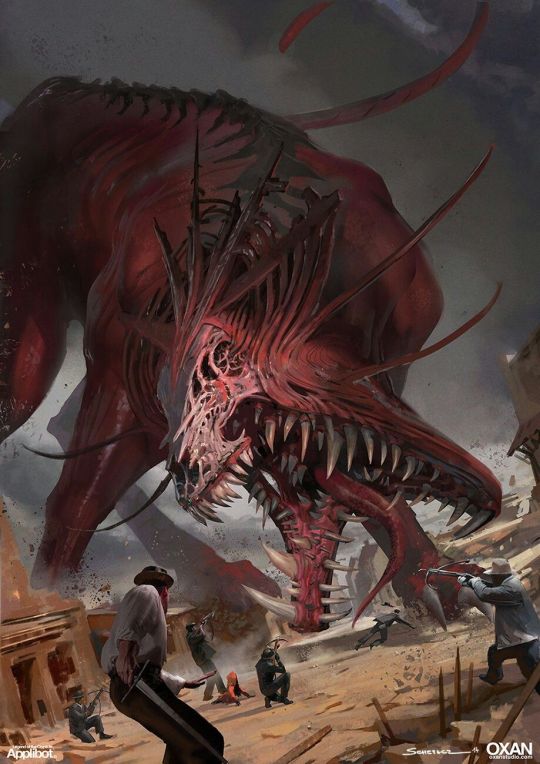
Monsters Reimagined: Yeenoghu, Demon Lord of Insatiable Hunger
It's been some years since I did my overhaul on the lore of the gnolls and how they embody the weird de/humanization that goes on with various monsters over d&d's history. Ever since I've had more than a few folks write in asking about how I would handle the default Gnoll God Yeenoghu, who exists in a similar state of "Kill everything that ever existed" to Orcus and a good portion of the game's other late game threats, thematically flat and not really useful for building stories around.
For a while I've avoided doing this post because I thought it might skew a little too close to my personal philosophy, and risk going from simply being influenced by my views to an outright soapbox. I personally hold that despite being part of our nature hunger is the source of the majority of human cruelty, and if society and cooperation are the tools we developed to best fight against the threat of famine, it is fear of that famine that allows the powerful to control society and secure their positions of privilege.
I've also dealt with disordered eating in a prior period of my life, alternating between neglecting my body's needs and punishing myself for needing in the first place. I'm well acquainted with hunger and the hollowing effect it can have, though I'd never claim to know it so well as someone who went hungry by anything other than choice and self hatred.
Learning to love food again saved saved my life. The joy of eating, of feeling whole and nourished, yes, but there was also the joy of making: of experimenting, improving, providing, being connected to a great tradition of cultivation which has guided our entire species.
If I was going to talk about an evil god of hunger, I was going to have to touch on all of that, and now that it's out in the open I can continue with a more thematic and narrative discussion on the beast of butchery below the cut.
What's wrong: Going by the default lore, there's not much that really separates Yeenoghu from any other chaotic evil mega-boss. He wants to kill everything in vicious ways, and encourages his followers to do the same. He's there so that the evil clerics can have someone to pray to because the objectively good gods are on the party's side and wouldn't help a bunch of cannibalistic slavers.
This is boring, we've done this song and dance before, and the only reason that there are so many demon lords/evil gods/archdevils like this is because the bioessentialism baked into the older editions of the game's lore was also a theological essentialism, and that every group had to have their own gods which perfectly embodied their ethos and there was no crossover whatsoever, themes be damned.
Normally I'd do a whole section about "what can be salvaged" from an old concept, but we're scraping the bottom of the barrel right from the inset. Likewise my trick of combining multiple bits of underwritten d&d mythology to make a sturdier concept isn't going to work as most of d&d's other gods of hunger or famine are similar levels of paper thin.
How do we fix it: I want Yeenoghu to be the opposite of the path I found myself on, a hunger so great and so painful that it percludes happiness, cooperation, or even rational thought. Hunger not as a sumptuous hedonistic gluttony but a hollowing emptiness that compels violence and desperation. More than just psychopathic slaughter and gore, it is becalmed sailors drinking seawater to quench their thirst, the urban poor mixing sawdust and plaster into their food because their wages are not enough to afford grain.
This is where we get the idea of Yeenoghu as an enemy of society, not because violence is antithical to society ( I think we've learned by now how structured violence can really be) but because society fundamentally breaks down when it can't take care of the people who provide its foundations. Contrast the Beast of Butchery with one of my other favourite villainous famine spirits: Caracalla the grim trader, who embodies scarcity as a form of profit and control in to Yeenoghu's scarcity as suffering.
Into this we can also add the idea of the hungry dead, ghouls yes but also vampires, anything cursed with an eternal existence and appetites it no longer has the ability to sate. A large number of cultures across the world share the idea that the dead cannot rest while they are starving, which is why we leave offerings of food by their graves or pour out a glass to the ones we lost along the way.
On that topic, there's also a scrap of lore involving Doresain god of ghouls, who has been depicted as an on and off servant of Yeenoghu. Since I'm already remaking the mythology, I'd have Doresain act as a sort of saint or herald for the demon lord, the wicked but still partially reasonable entity who can villain monolog before the feral and all consuming demon god shows up.
Summing it all up: Yeenoghu isn't a demon you wittingly worship, it's a demon that claims you, marks you as its mouthpiece and through you seeks to consume more of the world. It gives you just enough strength to keep on living, keep on suffering, keep on filling that hole in your belly and feed it in turn.
The greatest of these mouthpieces is Doresain, an elf of ancient times who's unearthly hungers elevated him to demigod status. Known as the knawbone king, he dwells within a dread domain of the shadowfell, and is sought out only for his ability to intercede with the maw-fiend's rampages.
Signs: Unnaturally persistent hunger pangs, excessive drool and gurgling stomach noises, the growth of extra teeth in the mouth, stomachs splitting open into mouths.
Symbols: An animal with three jaws, a three tailed flail or spiked whip. A crown of knawed bones (Doresain)
Titles: Beast of butchery, the maw fiend, the knawing god
Artist
547 notes
·
View notes
Text
The Trick To Writing Filler
(TL;DR at the bottom)
Filler is when you spend a chapter padding the length of your story between plot-related events. Filler chapters have little to no impact on the overarching plot and can be self-contained, and thus in TV shows filler episodes are often reran the most as people unfamiliar with the show can casually watch without being confused without the knowledge of prior plot beats
So with the chapter being largely self-contained and acting outside of the plot, what do you use to make the filler chapter engaging? I’m going to use filler episodes from Avatar: The Last Airbender to provide examples
1. Worldbuilding. Zuko Alone depicts Zuko’s travels taking him through an Earth Kingdom village and becoming acquainted to the family that allows him to stay with them, especially their young son. He learns about what the Fire Nation’s impact on this village has been; destroyed houses, families torn apart, constant robbery and other abuses of power and injustices. And even after Zuko defends the villagers and his new friend, he’s venomously cast out from the village by even the little boy because he outed himself as a firebender. This episode explored the impact of the war on the people of the Earth Kingdom, the victims of war that have no involvement in it and no way of defending themselves from it
2. Character exploration. In The Beach, we learn more about Mai, Ty Lee, Azula and Zuko and how their own traumas and personal upbringings have impacted their personalities. For Zuko this is part of a turning point for him, but for the girls it’s more to understand why they are the people we’ve gotten to know over the seasons, especially Ty Lee and Mai. The episode also serves to showcase how Azula and Zuko are so out of place being just normal teenagers; Azula has no idea how to talk to her peers and no identity outside being Princess Azula of the Fire Nation, while Zuko’s hotheadedness and jealousy issues lead him to lash out and be far too confrontational and controlling for his own good. This episode isn’t really used to develop these characters, or at least not the girls, but instead explains and showcases their behaviours and the reasons behind them
3. Character development. Going back to The Beach, Zuko does indeed receive development rather than just character exploration like the girls do; he comes to understand that he’s not just angry at the world or angry in general, but angry with himself. This is a notable turning point for Zuko’s redemption arc, because he now understands fully that he truly regrets betraying Iroh and sacrificing his new start in life in favour of returning to the Fire Nation. He might not yet be fully decided on turning his back on Ozai, but without this moment I don’t know if he’d have gotten there, or at least not as quickly as he did
4. Relationship development. Sokka’s Master has a C plot of Aang, Katara and Toph all being rather bored and lost without Sokka’s presence. The A plot exploring Sokka’s feelings of inadequacy and uselessness in comparison to such powerful and formidable bending masters being contrasted with the Gaang unable to function without him already speaks volumes about their dynamics, but looking deeper into the C plot also shows how much value Sokka really does bring to the team; structure, planning, humour, a quick wit, strategic moves. The Gaang always supported Sokka and never seemed to view him as expendable outside of the occasional teasing, but having it acknowledged so clearly and plainly that they can feel a little aimless and flat without Sokka and being so delighted when he returns really shows us the kind of value Sokka brings to this team and brings us and the characters to further appreciate it
5. Downtime. The Ember Island Players depicts the characters taking a break to watch a comedic play based on their wacky adventures, only to be largely underwhelmed and displeased by how they’re portrayed. There are no stakes to this episode and barely any plot, just the Gaang taking a breather as they react to a bad play. This chance to relax and watch something inconsequential is just as important to the viewers as we’ve got the show’s finale in the next four episodes, which will be very plot-driven and intense. The Ember Island Players also has the additional viewer bonus of recapping the events of the show right before it all ends, giving the viewers time to reflect on the journey they’ve gone on with these characters. In order for the stakes to feel high and the tension to rise, there has to be downtime where there are low stakes and low tension; if things are intense all the time, the moments that are supposed to feel super intense will just feel average in comparison. Resetting that intensity right before such a big event while still acknowledging the looming threat coming soon will feel like the calm before the storm and allow your audience to soak it all up like the characters are
Wow, did I just go through all that without talking about Tales of Ba Sing Se? I’ll save that for another post if people are interested in more
TL;DR - filler provides a moment to breathe, reset the intensity levels the audience are experiencing and take a chance to step away from the external conflict (the overarching plot) in favour of worldbuilding and the characters within your setting. Small moments can amount to something big, and can help make large scale decisions or plot twists feel more build-up and in-character
#filler#worldbuilding#character development#avatar the last airbender#atla#writing#writers#writeblr#bookblr#book#writers on tumblr#writerscommunity#writers of tumblr#writer#how to write#on writing#creative writing#write#writers and poets#female writers#queer writers#writblr#writer things#writing tips#writerscreed#writing advice#writing life#writer stuff#writersnetwork#writer problems
427 notes
·
View notes
Text
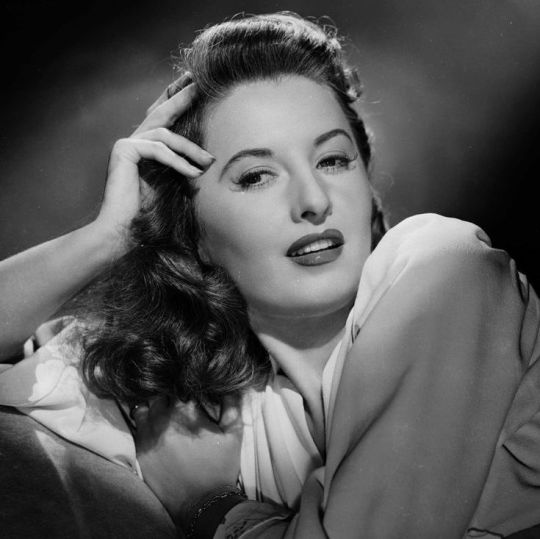
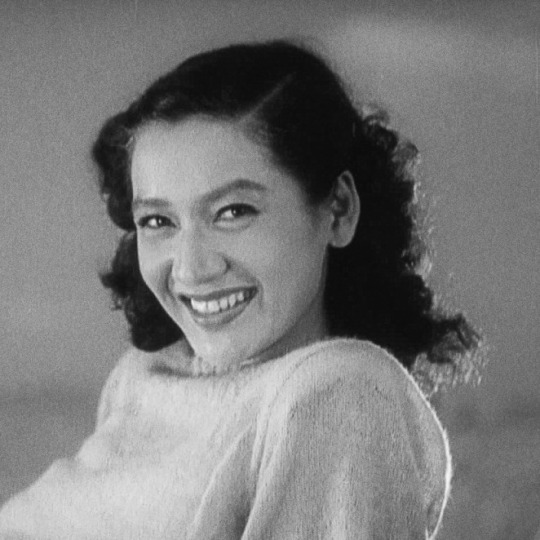
Propaganda
Barbara Stanwyck (Ball of Fire, The Lady Eve, Double Indemnity)—I hope someone else has submitted better propaganda than I because I don't want my girl's prospects to rest on me just yelling PLEASE VOTE FOR MY TERRIBLE HOT GIRLFRIEND. She is a delight in everything! She is often a sexy jerk! (It's most of the plot of Baby Face!) Even when she plays a "good girl" (as an example, Christmas in Connecticut, which more people should see) she's still kind of a jerk and I love her for it! She won't take men's shit and she sure wouldn't take mine!
Setsuko Hara (Tokyo Story, Late Spring, The Idiot)— "'The only time I saw Susan Sontag cry,' a writer once told me, his voice hushed, 'was at a screening of a Setsuko film.' What Setsuko had wasn’t glamour—she was just too sensible for that—it was glow, one that ebbed away and left you concerned, involved. You got the sense that this glow, like that of dawn, couldn’t be bought. But her smiles were human and held minute-long acts, ones with important intermissions. When she looked away, she absented herself; you felt that she’d dimmed a fire and clapped a lid on something about to spill. Over the last decade, whenever anyone brought up her lips—'Setsuko’s eternal smile,' critics said, that day we learned that she’d died—I thought instead of the thing she made us feel when she let it fall." - Moeko Fujii
This is round 4 of the tournament. All other polls in this bracket can be found here. Please reblog with further support of your beloved hot sexy vintage woman.
[additional propaganda submitted under the cut.]
Setsuko Hara:
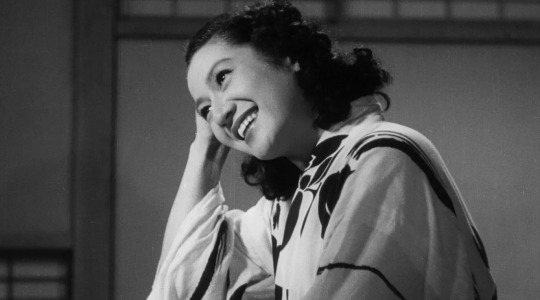
One of the best Japanese actresses of all time; a symbol of the golden era of Japanese cinema of the 1950s After seeing a Setsuko Hara film, the novelist Shūsaku Endō wrote: "We would sigh or let out a great breath from the depths of our hearts, for what we felt was precisely this: Can it be possible that there is such a woman in this world?"

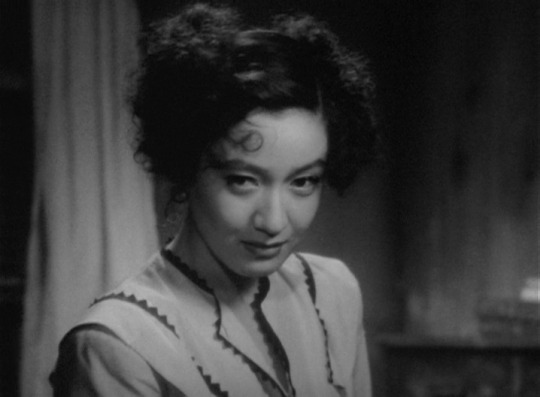
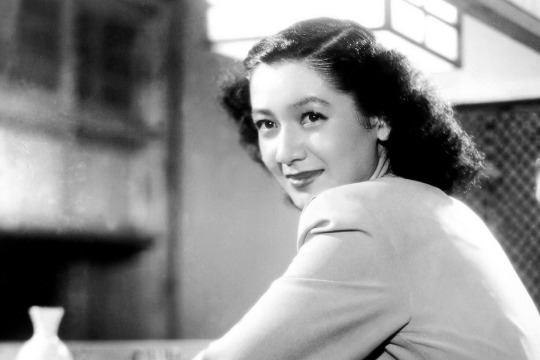
One of the greatest Japanese actresses of all time!! Best known for acting in many of Yasujiro Ozu's films of the 40s and 50s. Also she has a stunning smile and beautiful charm!
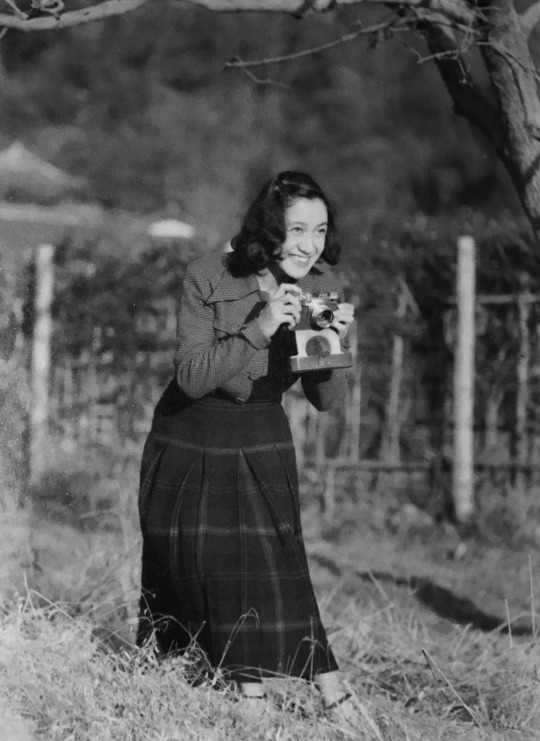
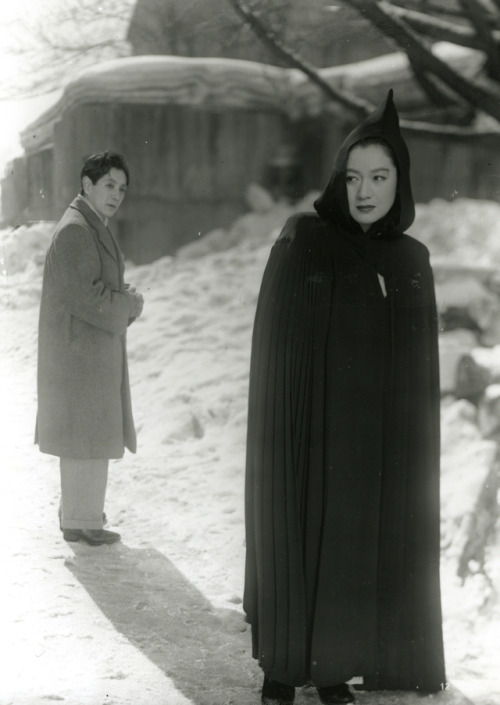
Linked gifset
Linked gifset 2
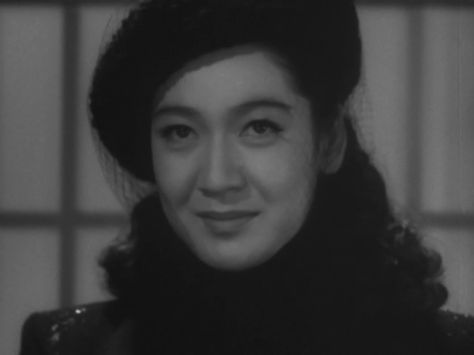
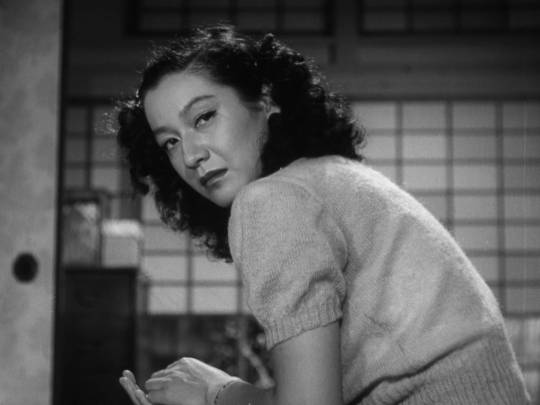
She's considered by some to be the greatest Japanese actress of all time! In Kurosawa's The Idiot she haunts the screen, and TOTALLY steals the show from Mifune every time she appears.
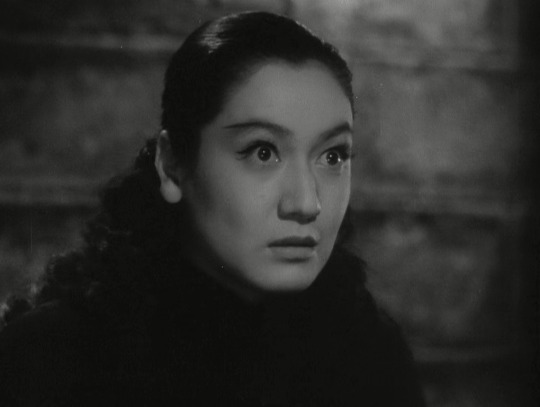
She's considered by some to be the greatest Japanese actress of all time! In Kurosawa's The Idiot she haunts the screen, and TOTALLY steals the show from Mifune every time she appears.
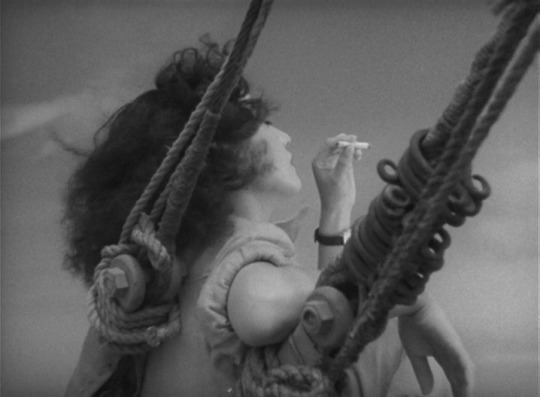
"No other actor has ever mastered the art of the smile to the same extent as Setsuko Hara (1920–2015), a celebrated star and highly regarded idol who was one of the outstanding actors of 40s and 50s Japanese cinema. Her radiant smile floods whole scenes and at times cautiously undermines the expectations made of her in coy, ironic fashion. Yet her smile's impressive range also encompasses its darker shades: Hara's delicate, dignified, melancholy smile with which she responds to disappointments, papers over the emotions churning under the surface, and flanks life's sobering realizations. Her smiles don't just function as a condensed version of her ever-precise, expressive, yet understated acting ability, they also allow the very essence of the films they appear in to shine through for a brief moment, often studies of the everyday, post-war dramas which revolve around the break-up of family structures or the failure of marriages. Her performances tread a fine line between social expectation and personal desire in post-war Japan, as Hara attempts to lay claim to the autonomy of the female characters she plays – frequently with a smile." [link]
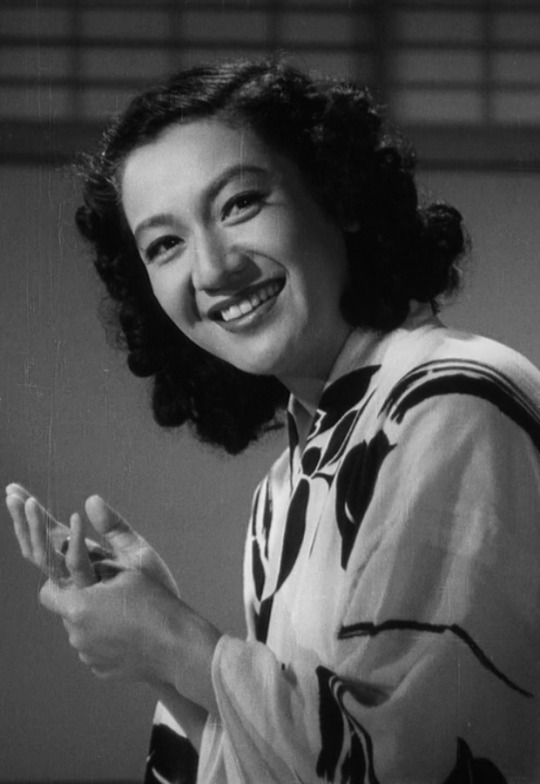
Leading lady of classic Japanese cinema with a million dollar smile
Maybe the most iconic Japanese actress ever? She rose to fame making films with Yasujiro Ozu, becoming one of the most well-known and beloved actresses in Japan, working from the 30s through the 60s in over 100 hundred. She is still considered one of the greatest Japanese actresses ever, and in my opinion, just one of the greatest actresses of all time. And she was HOT! Satoshi Kon's film Millennium Actress was largely based on her life and her career.
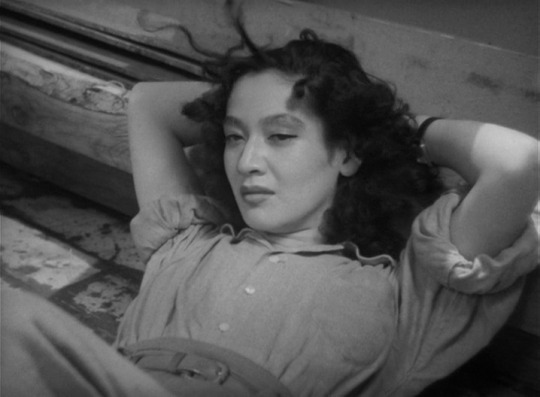
Barbara Stanwyck:
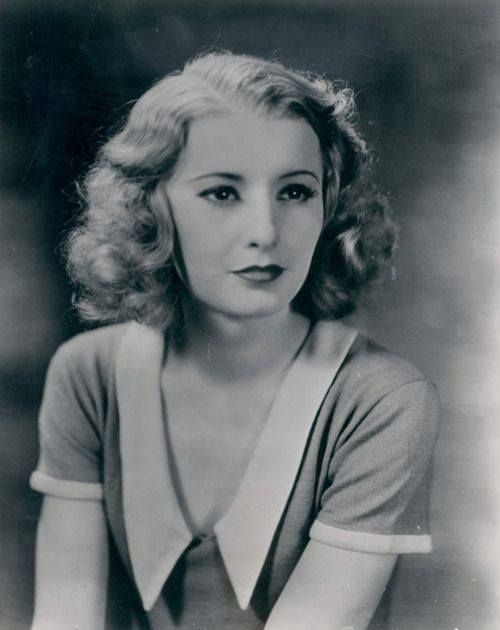
"THE leading lady of the golden age of hollywood. One of the only actresses to work independent of a studio, making short-term contracts that enabled her to make movies wherever she wanted. She had so much range, and could act in basically any genre. She's been rumored to be a lesbian literally since she was active in Hollywood; most notable is the rumor that she had a long time on-and-off relationship with famously bi Joan Crawford, her "best friend" for decades (They lived right next door to one another). She also lived with Helen Ferguson, her "live-in publicist" for many years. She was the quintessential femme fatale in Double Indemnity, and really pushed sexual boundaries in her pre-code films like Baby Face, and the famous screwball The Lady Eve, where she plays basically a downlow domme. Allegedly, when a journalist asked her if she was a lesbian, she straight up threw him out of her house. She even played a lesbian in Walk on the Wild Side"
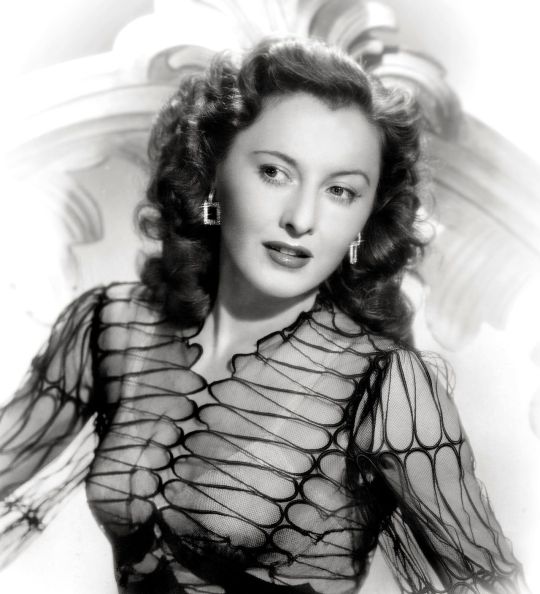
"THE queen of screwball comedies. I adore her, I'd kill for her, I will cry if she's not gonna win this poll."

"listen ok she had awful politics she was a mccarthyist right wing wacko BUT she's so incredibly hot that i've deluded myself into believing i could fix her. if you see her onscreen she carries herself in a way that's just so effortlessly sexy AND she has just a stunning face. imo she was at her hottest in the 1940s but even as early as the late 1920s she had a rly captivating screen presence and just a beautiful face, and then post-1950 she was just irresistibly milfy so really she was just always incredibly hot. she was also an incredibly talented actress who was equally stellar in melodrama, film noir, and unhinged screwball comedy. the blonde wig they made her wear in double indemnity is notoriously silly looking but she still looks sexy in it so that's gotta count for something. i've watched so many terrible movies just for a chance at seeing her that i think her estate should be paying me damages."
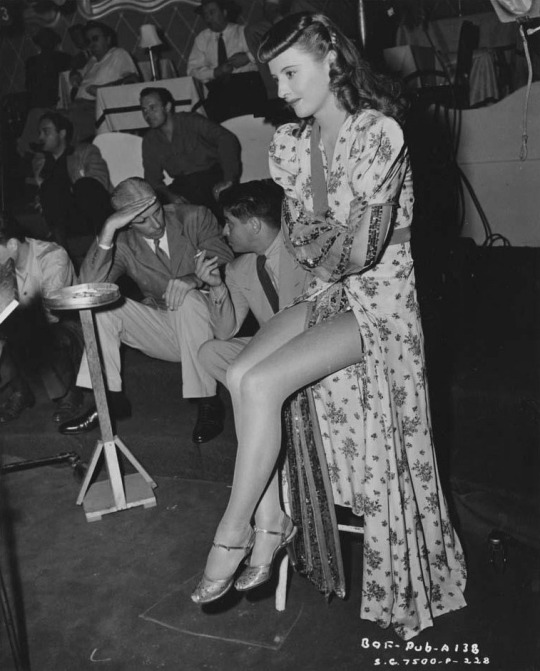
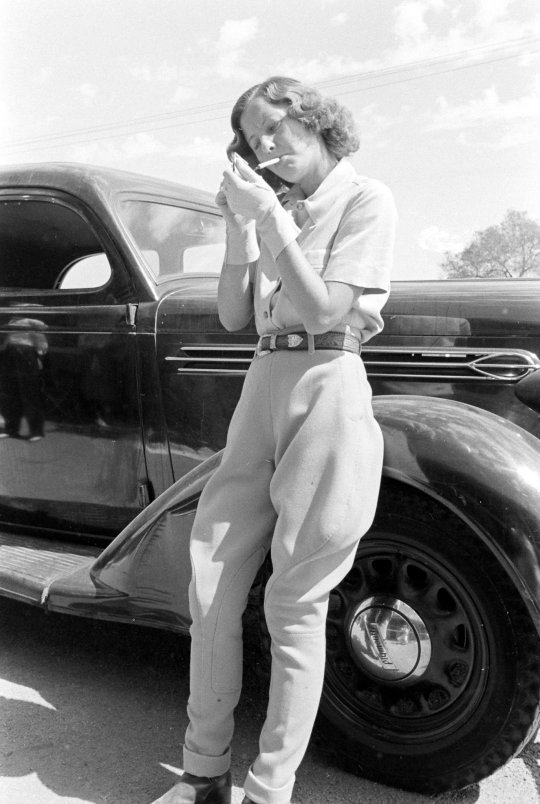
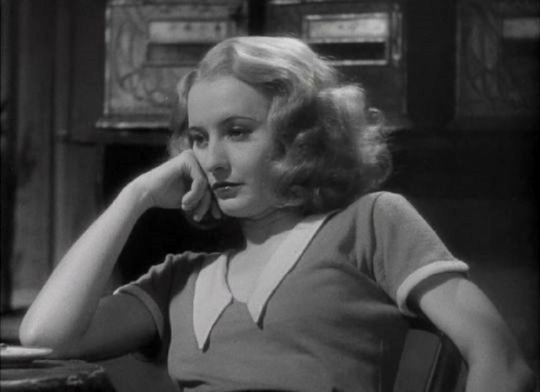
"Not often thought of for her sultriness, Barbara Stanwyck was incredible in that she could actually choose to be hot if the role called for it, and then have a glow-down to look ordinary for another role. She wasn't the most beautiful or effervescent, but damn did she have rizz. Watch her with Gary Cooper in Ball of Fire teaching him about "yum-yum" or with Henry Fonda in The Lady Eve whispering huskily into his ear."
youtube
"She is always the smartest woman in the room. Watching her play Henry Fonda like a befuddled fiddle in The Lady Eve was a highlight of my life. Femme fatale in Double Indemnity, comedy queen in Ball of Fire. She can do anything."
"She was part of my gay awakening"
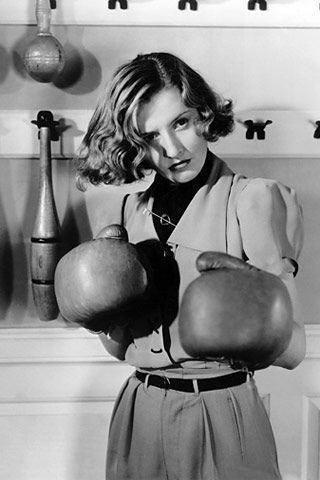
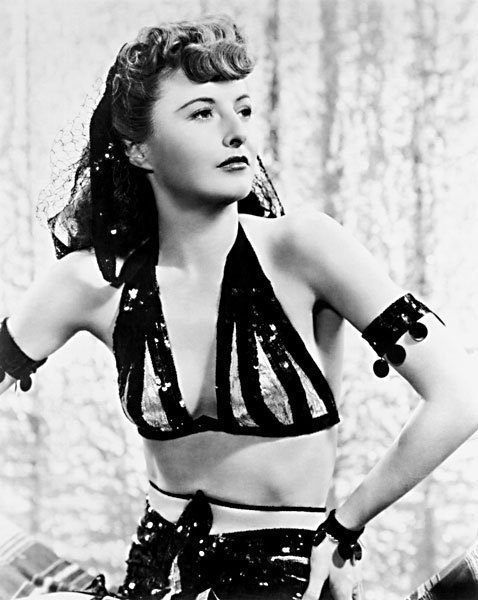
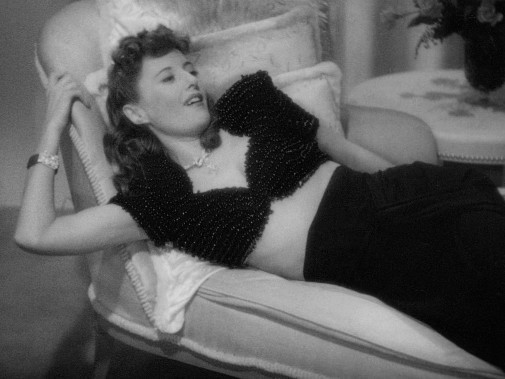
"SHE'S A PRE-CODE QUEEN. She did everything, drama, comedy. The most beautiful woman in the world to watch weep. Beg for to step on you with those legs. Fun Babs story: Ginger Rogers was offered the role in Ball of Fire but said, “Oh, I would never play that part, she’s too common.” So they called Barbara Stanwyck and they said “We offered this to Ginger Rogers but she’s turned it down, would you be interested?” And she read the script and she said; “You bet! I LOVE playing common broads. [link]"
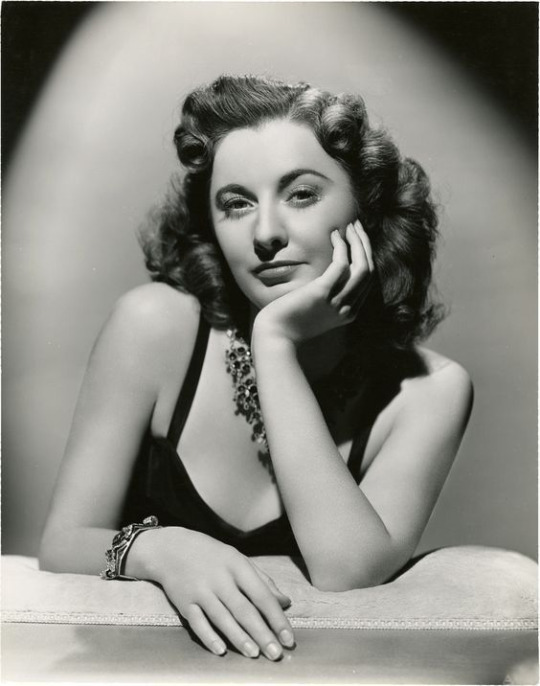
300 notes
·
View notes